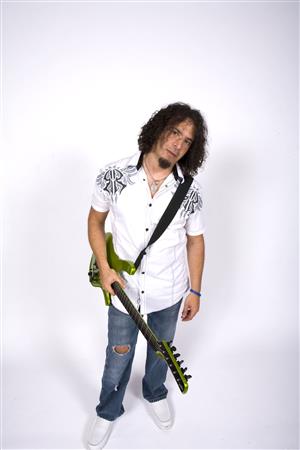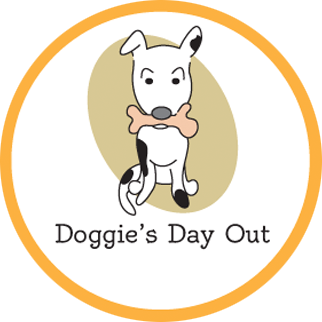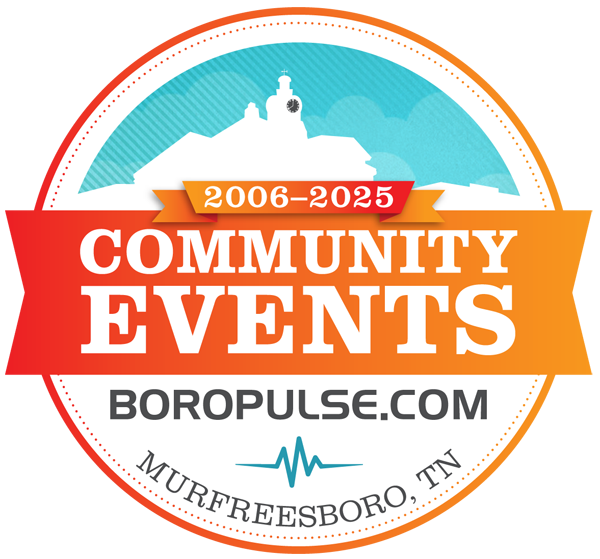
The Nashville area is crawling with people whose names and faces are probably not immediately recognizable, but if you ask them, you’ll find out they recorded with Willie Nelson or something. For example, New York-born Saul Zonana, who now spends his time in Murfreesboro, spent the ’80s,’90s and 2000’s touring with artists like Deep Purple, Ace Frehley, Adrian Belew, and Crash Test Dummies. He started making solo albums in 1999 and now has 10 to his name, the most recent of which was 2012’s Fix the Broken. Zonana is hanging up the solo hat for now to focus on a new four-piece band that features bassist Tim Denbo, guitarist Damon Lascot and drummer Tim Grogan (who started Nashville’s Studio 515), all prominent area musicians and songwriters. The group, temporarily named the Saul Zonana Experience, plays a mix of altered covers and originals with a focus on developing a live performance before one audience rather than touring or recording just yet. Their set is going to be a monthly event all summer, the first of which was June 14, and into the fall at Liquid Smoke on the square. Here, the multi-instrumentalist and songwriter discusses the project.
Where did the idea for your current project come from?
I had been doing my original show with the Saul Zonana Trio. The last couple albums I put out, we played a whole bunch of gigs, some in town, some out of town. I just hit a wall where I felt like I’ve just been doing the same things for a while. As a creative musician, that’s how I phrase it, where you’ve taken something as far as you can take it. You need to create something else. And with a trio, it’s hard to build on what you’re doing. I reformed the band, and we’re doing our versions of cover songs and mostly new originals. We do versions of Beatles songs and funky versions of Tom Petty songs or whatever strikes us. The way we decided to do it is to immediately put it in front of an audience. How can I put it in front of an audience and build it properly? Keep it local, keep it in Murfreesboro. I have a lot of friends that love to smoke cigars, hang out and listen to music and I found Liquid Smoke to be a little more enticing for not just the college person, but an older person as well. We’ll do it once a month for several months, and by fall I think we’ll be a pretty tight band and take this thing on the road. Maybe we can make Liquid Smoke our home town gig. When I approached Liquid Smoke, I said the only way I wanted to do it was if they’d guarantee a bunch of months. The whole idea was to build this. The relationship is working so far. It’s a pretty cool hang at Liquid Smoke.
How was your first show?
There were three different guitar players that came up and threw songs at us. That’s how I envisioned it. Richie Cerniglia, who was once the guitarist for Hall & Oates, is a fantastic blues guitar player and writer. He came down and blew a lot of people away. We became his backup band, and that was one of the highlights of the night. We had a pretty big crowd and are optimistic that it will get better. I like a room that’s loud and drinking and smoking. I’m 45 and been playing since I was 13, and you’d think by now I’d be over going into a bar, but it’s actually refreshing. I’ve been on proper tours where it’s just critical listening. You’re in the hot seat. In Nashville, some people are standing with their arms folded like, “Impress me. What have you got?” You’ve got to do something unique and special to stand out. That doesn’t intimidate me; we will, but it was refreshing to sit there and see everyone was having fun and call up different players to play. The underlying thing is it’s got to be good. It’s not amateur hour, not “Can I come and jam?” It’s bringing pros into the square.
Why did you decide to do covers, and how do you decide which songs to cover?
The older I get, I’m learning more and more my job is to entertain other people. There’s a certain amount of self-indulgence and self-satisfaction in playing music, but if at the end of the day you’re not there to entertain, you’re there for the wrong reasons. To go into a club and play a bunch of songs no one’s heard, it’s not always the most exciting thing in the world for them. We’re making sure we’re entertaining while we build our songs. We picked songs we’ve always loved that we can do our own take on, that are also familiar to other people. Once we take the show on the road, we’ll continue to do covers. There were people at the first show at Liquid Smoke who’ve come to see my original show several times who said they had a lot more fun this time, because it was more of a party feeling. As long as we’re not purposely a cover band, always playing them how they were originally played, but considering we do “Love Me Do” as a reggae song . . .
What will the next step be? Will you record?
July 13 and 14, we have an SSL room in Nashville we booked. We won’t get overzealous; we’ll just cut two songs and take it from there. The ultimate goal is to complete a full album. The cool thing about being older is we’ve all been at this a while and know how to do it. So the studio experience should be nothing but absolute fun.
What’s your songwriting process like with this band?
For now, I’ve written the songs we’re doing at Liquid Smoke, because basically they’re songs I didn’t know I’d be introducing to this band. But the other guys are all writers. Damon, that’s what he does. Tim Grogan is a writer and producer, drummer, pianist. Tim Denbo is a Berkeley grad, composer and writer. We’ll be writing the songs for this band together. I don’t need to write another album myself. Collaborating right now is very energizing to me, and I couldn’t pick another group of guys I’d rather be collaborating with. These are energetic, creative great guys. What could possibly go wrong? I think the more we play, we’ll develop a personality. Once we develop this, it’s on… and sometime in the fall we’ll go and do a proper album with a real producer.
Looking back on your solo albums, which are you most satisfied with?
The common answer is you can’t pick a favorite, they’re all your kids. They all represent my growth as a songwriter, but there’s something about the album Blue Monkey I recorded with Aaron Comess of Spin Doctors and Richard Hammond and Teddy Kumpel. We went to Aaron’s house in the Poconos, played together in a semicircle in a log cabin living room and with a table full of wine and spaghetti, we turned the house into a recording studio. We played Blue Monkey live, took the album back to Nashville and I sang it. I can’t put my finger on it. Over the years, when people ask me to play songs live, it always comes from that album. I thought my favorite album was going to be Fix the Broken, where I played all the instruments except drums. I’m super proud of those songs. But the album that satisfies me the most so far is Blue Monkey. It wasn’t recorded as well as Fix the Broken, but people seem to gravitate toward that [one].
As someone who has toured globally and played large venues, what is the draw to smaller venues for you?
Years ago when I toured with Ace Frehley (KISS), it was basically the first that I was playing big theaters, and that’s where I got used to the big crowds. But even with Crash Test Dummies, and Adrian Belew, aside from festivals we’d do once in a while, we were basically playing gigs at clubs that only held 200 to 400 people. Even though we did a lot of touring, it wasn’t for 10,000 people at a time. There was a time when I played The Living Room in NYC. The original location was a hugely famous showcase room. I played there just about once a month. I did it where you could not fit bodies in the room anymore, and a guy from a record company couldn’t get in the door. It’s a good thing to have happened. There’s an energy when you pack a room. The appeal to going into a small venue is there’s very little pressure. 40 were at the Liquid Smoke show, and the energy was great. This feels like the right size and right type of people to start this project—just bar-y enough, but certainly not a hole in the wall.
You’ve gone from collaborating to a long stretch of solo work back to collaborating. Do you think you’ll go back to doing solo work at some point?
Of course. At the end of the day, I’m just writing. The one thing in my life that has never changed and hopefully never will, is music flowing through me. Somehow, some way, for some reason, for better or worse. My mother said it was going on before I could talk. She said I was making up original songs in baby garb. All the things I go through in life, music has always flowed through me. It comes down to what to do with all this music. Up ’til several years ago, you made an album, you toured and sold the album and people paid to download. It’s 2013 now, and it’s built up to the point where unfortunately music is essentially free. With streaming services, it’s destroyed the old model of music having value and people willing to pay for it. People are still willing to pay on some levels, but the new generation only know how to turn on Rhapsody and Spotify, so you have to adjust. If selling your music is becoming a thing of the past, that can’t stop me. I have to figure out what to do, and my only answer is do what we’re doing. Take it in front of people. Whether I’m in this band or another band or just me, there will always be music. I do everything I can to keep things fresh and creative. I’m not saying I’m done being a solo artist, I just need to re energize myself.
How has family life impacted or interfered with your music?
The only way it’s impacted is it’s inspired me to write songs about that life change. There’s a whole album I made, Love Over Money. The whole album was written all about the biggest priority shift I ever went through. The making of that album took place right as I had to stop touring. I had a baby at home and it was flipping him out [for me] to be gone for a month. He’d be overwhelmed. There’s even a short film in the album—a documentary that played on PBS and various other television stations about the music business, and it’s basically a movie about guys like me. That whole album is dedicated to your question. All my son’s toys I used as instruments. The album just reeks of my whole priority shift in life. It was very hard. There was a huge amount of love for my son, but you do something your whole life, and it stops on a dime. The business and technology was changing at that time, too. It was a huge impact, but like I said, fortunately for me, the one thing that never stops is creating music. The only way I’m going to be a good father is to feel satisfied with what I’m doing creatively. Both are important. It’s not without trials and tribulations. Everything comes with great effort. It’s a process. But I’m in a good place right now.
The next Saul Zonana Experience will be July 5 at Liquid Smoke.












